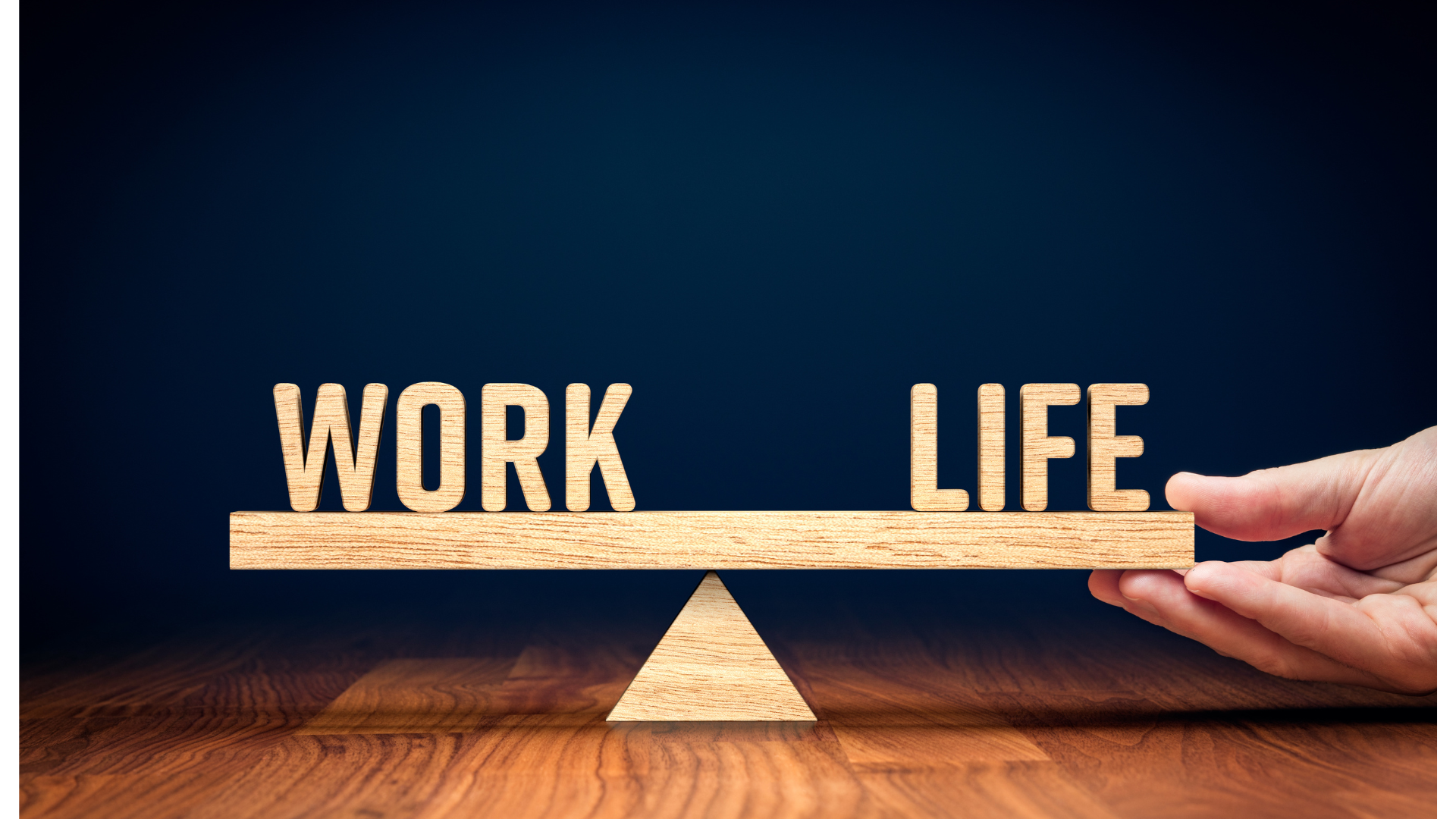Work-Life Balance – Windows of Time, Guest Article by Dr. Donnie Hutchinson
Date:Sunday September 12, 2021

As a first responder, it’s easy to prioritize the job and let family relationships and your health take a backseat. You might believe a balanced life is not possible for you. I understand how you feel, given the pressures of the job and the critical incidents you experience through your work. Many first responders I’ve met in my workshops felt this way. However, they found they can achieve balance once they understood what work-life balance (WLB) really was and what it wasn’t. This article intends to help you understand and achieve greater WLB through evidence-based research practices.
Let’s begin by understanding what causes issues with work-life balance. There are three major categories by which we can experience work-life conflicts (WLC). Time, energy, and behavior conflicts are experienced by all humans regardless of their profession, age, or geographical location. Time conflicts occur when we cannot be in two places at the same time. When we are at work, we are not with our families. We understand this conflict negatively affects our families when we are absent from special family gatherings or events. Energy conflicts are experienced by most because of the rigor of the job. We are often depleted of physical and mental energy by the end of our shift. We then travel home and find our family members want our energy, yet we have none to give. This lack of energy usually negatively spills over into irritableness and less tolerant behaviors. The third and final WLC is the behavioral conflict. This means the behaviors needed to perform well on the job are not necessarily the best behaviors to use with your spouse, teenager, or two-year-old. It’s not that we do this on purpose; it’s we are well practiced in our work behaviors.
Work-Life Balance
Work-life balance has many definitions and beliefs that are inaccurate from this researcher’s perspective. My definition of WLB is described within the context of a question. “Are your daily behaviors in alignment with your priorities in life?” Let’s read that sentence again, so it sinks in. “Are your daily behaviors in alignment with your priorities in life?” If they are, you are probably feeling good and a have sense of balance. If they are not, you probably feel like something is off and out of balance. My experience from training thousands of first responders is that many haven’t taken the time to stop and think about their priorities in life. If you happen to be one of them, no worries. This article will help you rediscover some of your priorities. It is important to note there are a couple of universal priorities for most people. These priorities consist of health, wellness, and close family relationships. How well we take care of ourselves is called self-care. It has been shown through evidence-based research that it is critical to one’s WLB.
Self-Care
Self-care consists of effectively managing your physical, psychological, social, and spiritual needs. These needs are universal, meaning every human on earth requires these within some degree or another. Some of our physical needs include nutrition, exercise, sleep, and hydration. Our psychological, emotional needs include having someone to talk to regarding critical incidents, utilizing peer support, your Lighthouse Wellness App, and talking with a culturally competent therapist. Social needs include spending time with friends and other close personal relationships. Prayer, meditation, and spending time in nature are ways to meet your spiritual needs.
According to the Center for Disease Control and Prevention (CDC), improper management of our self-care can lead to catastrophic preventable diseases which harm individuals, families, and organizations. Problems with heart disease, stroke, type2 diabetes, depression, certain types of cancers, and low quality of life are related to obesity and preventable. The deadly harm these preventable diseases have inflicted on the population has unfortunately been very evident during the COVID-19 pandemic.
Self-Care within First Responders
A positive and healthy cultural change of managing our self-care more effectively has taken place over the past couple of years. Thanks to leaders in first responder departments, non-profit organizations, professionals dedicated to supporting first responders, and researchers who get involve sharing evidence-based research to help improve the self-care practices of all first responders. For example, the 100 Club of Arizona conducts and sponsors numerous webinars and in-person workshops to help teach the latest strategies and tactics with self-care, health, and wellness.
Many local, state, national, and international educational health and wellness conferences over the past several years coupled with academic research findings suggest the greatest challenges facing the health and well-being of first responders include cardiovascular disease, cancer, and behavioral health issues. This researcher also suggests that improper management of self-care can lead to work-life balance issues that exacerbate the negative outcomes for first responders and their families. Therefore, the overarching question is: what can we do about it? We can begin to align our daily behaviors with our priorities in life.
Priorities in Life
I’m going to cut to the chase with you regarding priorities in life. A vast majority of first responders list their family and health as their two top priorities. With that said, how have you prioritized them in your life? In your daily behaviors? How have you failed to prioritize your family in your life? Your daily behaviors? If your health is a stated priority, how have you prioritized or failed to prioritize your diet, exercise, and sleep? I am asking these questions because our daily behaviors demonstrate and reveal our priorities in life regardless of if we acknowledge these priorities. In other words, the verbal statements we make to our loved ones express our desires, yet our daily actions reveal our lived priorities. Adjusting your daily behaviors to align with your stated priorities in life is an action you can begin. Please note, time is not always on your side – I call it the Window of Time.
Window of Time
Best start putting first things first. Cause when your hourglass runs out of sand, you can’t flip it over and start again. Take every breadth God gives you for what it’s worth – Kenny Chesney.
The lyrics to Kenny’s song hit me like a brick. Time is a funny thing. The days are sometimes very long, yet the years fly by. I will share with you my concept of windows of time through the example of my youngest daughter.
Hannah is a senior in high school. I have already graduated three children and Hannah is my last one. Two of my daughters went off to college, and my son joined the army and spent his military time with the 82nd Airborne. It’s challenging to have daily interaction with my three older children. My window of time to have daily interaction with them in the home has closed. My opportunity or window of time with Hannah to have daily interaction with her in the home is open for one more year. Then it will close as she will go off to college somewhere in the United States. 
I often ask myself what experiences do I want to have with Hannah while the window is still open? How many more late-night dinner conversations at the kitchen table can we have? How many more daddy-daughter dates at the local coffee shop can we have together to spend countless hours talking about her life and future? I have one more track season to watch her run, one more homecoming dance to wish her fun, and one more prom night to clean my gun – humor intended! A window of one year becomes a window of months, then weeks, then days, then hours. I know this well because I just dropped my second daughter off at college. I accomplished many things with her during her senior year because I made it a priority.
Who or what in your life has a window of time? Could it be with your children? Your relationship with your spouse? Your parents or grandparents? Your health? The question I have for you is, “what do you need to do now that you might not be able to do in the near future because the window closes?” If you desire to align your daily behaviors with your priorities in life, consider using your window of time to help you rediscover your priorities in life. You’ve got this and I will leave you with this thought:
Dr. Donnie once said,
Self-care will build a successful foundation for life
You desire your family to be full of love, not strife,
Align your daily behaviors with your priorities in life.
You’ll be more effective with all the hats you wear
By experiencing work-life balance through self-care.
